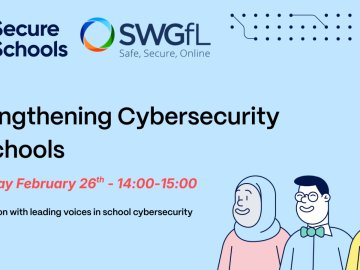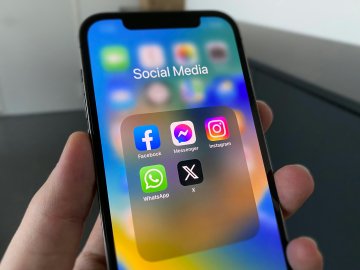Recent concerns have been raised in the media regarding the potential for harmful content to be accessed via iPads issued to students in schools. These concerns highlight the critical importance of understanding the full extent of how filtering systems operate and the need for a collaborative, proactive approach towards managing devices. While the challenges are significant, there are practical steps schools, parents, and communities can take to address these risks effectively.
Understanding Filtering Systems
Filtering systems are a vital safeguarding tool in helping manage online risks, but it is extremely important to recognise that no system can guarantee 100% complete protection. Filtering systems play a crucial role in managing online risks but are not designed to eliminate them entirely. As online environments, platforms, and access methods evolve rapidly, these systems must continually adapt to remain effective.
In 2016 UK Safer Internet Centre first introduced its definitions for appropriate filtering and monitoring and its accreditation for filtering systems earlier in 2024, to help schools procure, understand and manage their safeguarding systems to better protect their children, staff and community
However, and similar to an MOT for a car, accreditation or validation of a filtering system ensures it meets a benchmark standard of performance but does not guarantee the removal of all risks. Effective filtering is not a one-size-fits-all solution that can be implemented and forgotten. Instead, it requires ongoing vigilance, collaboration, and education to tailor practices to specific community needs. For instance, ensuring that only search engines with SafeSearch enabled are accessible is an essential step in creating safer online spaces.
Challenges with School-Issued Mobile Devices
We see that mobile devices, like iPads, present unique challenges in filtering harmful content:
Configuration Matters: How filters are applied and maintained on devices is crucial and there are often specific requirements needed for filtering systems as they can work differently on mobile devices compared to laptops or PCs. These are highlighted in our UKSIC paper.
Managing Mobile Devices: it is important for a filtering system to be effective -that mobile devices are managed correctly especially when they are used by multiple people. Many schools use MDM (mobile device management) tools to help distribute and manage specific applications for specific users. it is also usually important that users will log into the mobile device.
Testing for Filters: Schools should use tools like Testfiltering.com to check whether filtering systems are active and have a process to do this regularly and across all device types but as before, this is not a 100% guaranteed method to test effectiveness. Please learn more about this from the Test Filtering website.
For more details, read the UKSIC’s March 2023 report on the challenges of filtering and monitoring mobile devices in schools.
A Holistic Approach to Online Safety: The 3Ps
Effective online safety requires more than just technology. The UKSIC advocates for the 3Ps approach:
People: Ensuring everyone understands their roles and responsibilities in relation to filtering is key and all staff need to be empowered to act upon incidents effectively as part of a whole school approach. Developing critical thinking skills and building digital resilience should form part of online safety education and include what to do should learners encounter unsuitable content.
Process: Having robust policies and processes that align with and complement the school’s safeguarding approach is very important. Escalation pathways should be clear and robust highlighting immediate actions, incident review arrangements and follow-on actions, including reporting arrangements to providers to prevent future repetition.
Product: Filtering systems are a supporting tool and should be configured to support both safeguarding and teaching and learning requirements. The use of differentiated filtering policies should be applied to support different user groups such as staff and pupil/student key stages, helping to prevent instances of over blocking.
Schools and other educational settings can obtain further guidance and advice:
Wales - https://hwb.gov.wales/support-centre/education-digital-standards/web-filtering-standards
What Can Parents Do?
Parents play a critical role in ensuring their child’s safety online.
Use Parental Controls: Take advantage of tools like iOS Screen Time, Microsoft Family Safety, and Google Family Link to set restrictions based on your child’s age on your family devices
Explore Safe Search Options: Encourage younger children to use child friendly search tools like Swiggle and investigate safety options provided by your home broadband provider such as router settings.
Communicate Openly:
- Take an interest in your child’s online world and have a conversation about what they like and what they don’t like.
- Encourage them to share concerns about anything upsetting they encounter online and what they should do if they come across anything that worries or upsets them.
- Discuss expectations as part of a family agreement and agree things like time online and devices before bedtime. Remember family agreements apply to parents/carers too.
Engage with Schools: Attend parental awareness sessions and discuss any online safety concerns with your child’s school. Collaboration between parents and schools is key to managing risks so should be mutually supportive.
Important Information
While the recent news is deeply concerning around children being able to access harmful content on school-issued devices, there are actionable steps schools and parents can take:
Recognise the limits of filtering systems and supplement them with education and open communication.
Advocate for stronger collaboration between schools, local authorities, and parents.
Adopt a policy and processes that regularly check/test that filtering systems are working (across all types of devices) as expected by using available tools and resources
Educate and support children so they are aware that they can talk to an adult if they have seen upsetting content
Importantly, the most significant protection comes from fostering trust, awareness, and shared responsibility between schools, parents, and children.






